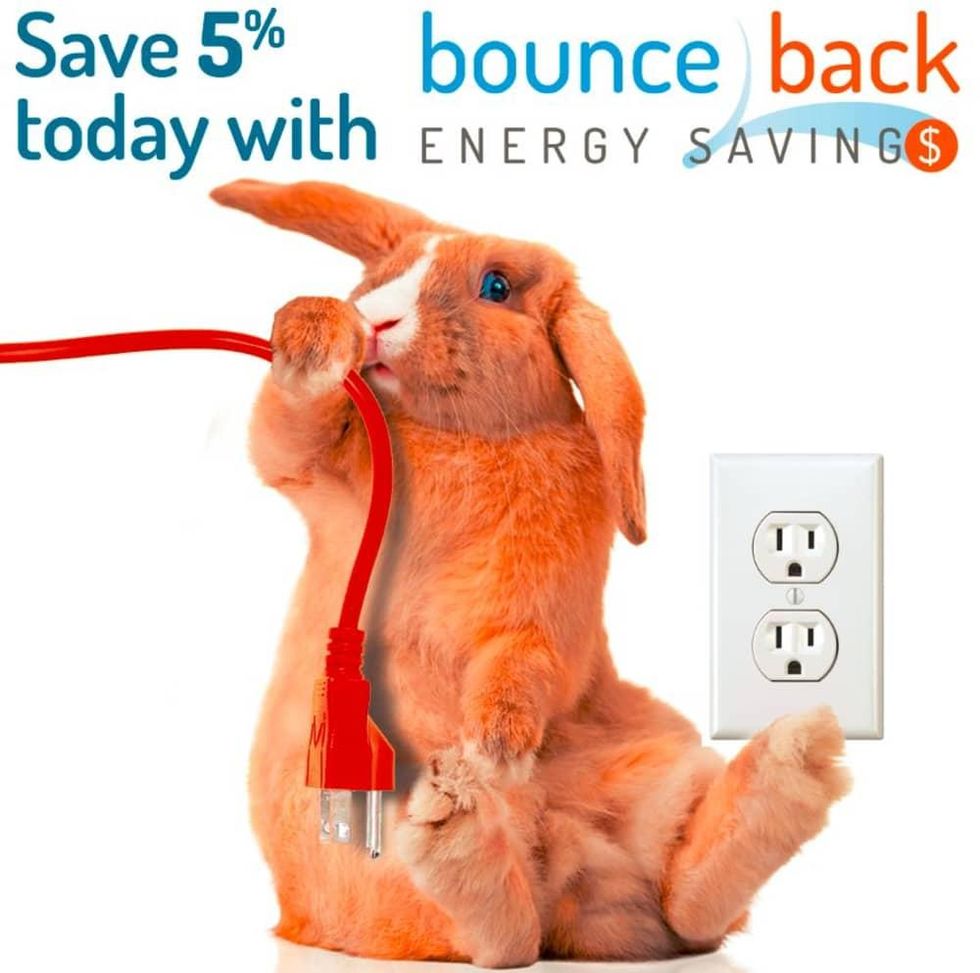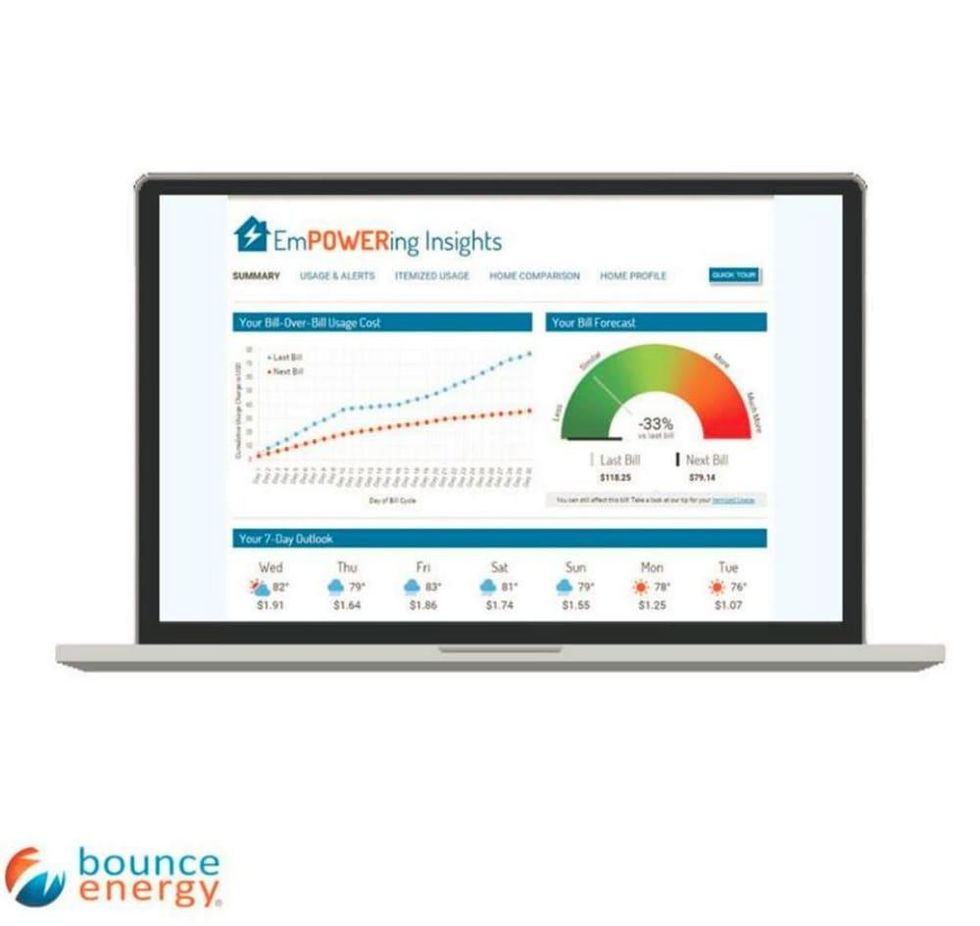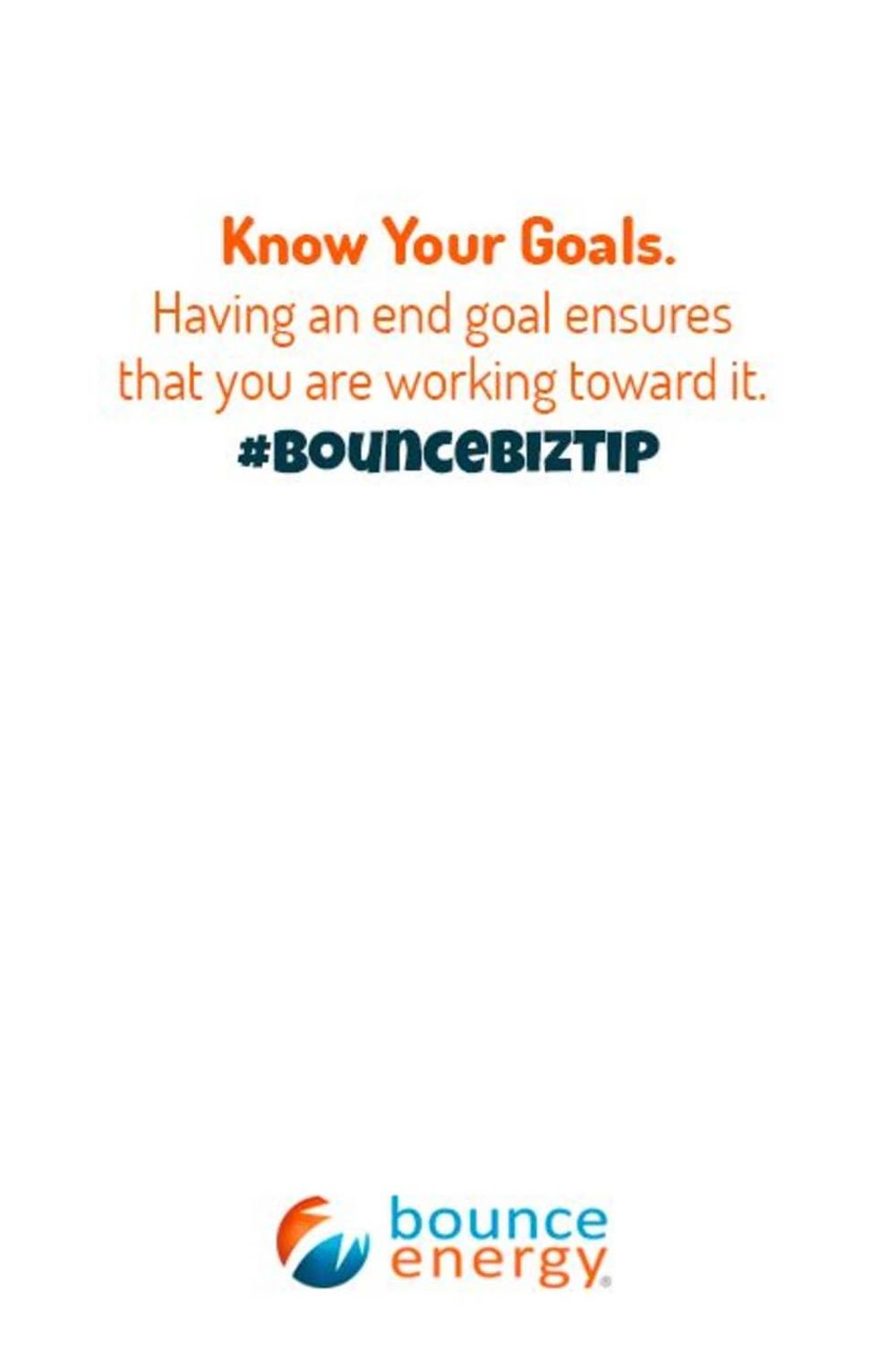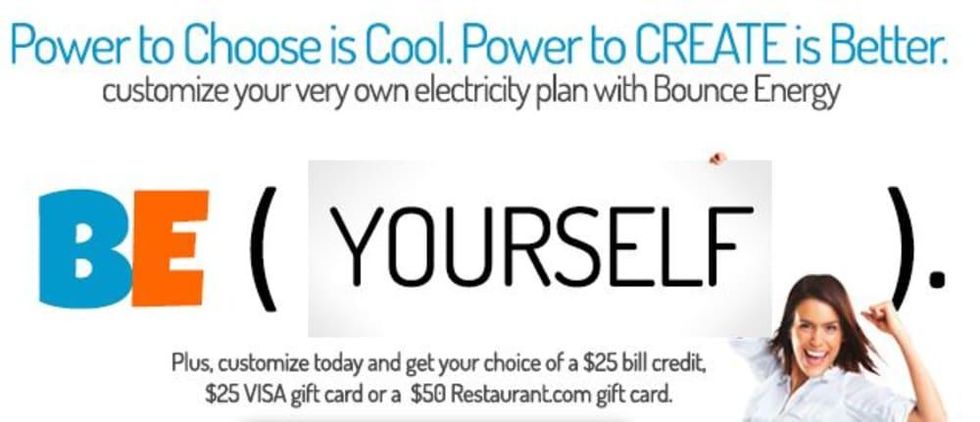Bounce In Entrepreneurship
Putting the Bounce in entrepreneurship: Secrets of a start-up reveal the way to win
When Robbie Wright and his co-workers got the bright idea to launch a company that sold electricity to Texas consumers predominantly online in 2008, many of their family and friends thought they were crazy. "They all looked at us and basically said, 'What are you doing? You're going to get murdered,' " Wright recalls.
"It wasn't bad advice or bad input. But we pretty much ignored good feedback from people because we were convinced we had a line on what we were doing and a way to win."
Wright and his co-workers created Bounce Energy as a different kind of energy company, appealing to savvy Internet users, targeting underserved consumers, particularly women, green enthusiasts, those moving to a new location and the credit challenged, with competitive rates and cool rewards programs, like Mommy Merits. They developed innovative, one-of-a-kind programs like the Build-Your-Own Plan that developed a strong following.
In 2013, Bounce was acquired by Direct Energy for $46 million. Wright stayed on with the parent company, initially as vice president of Digital and Innovation. In November 2015, he was named the vice president of Connected Home North America. But, having been involved in several startups where he's "seen things go both good and bad," he holds tight to the rules of entrepreneurship that apply to anyone with a good idea and the determination to succeed.
"In the innovation role at Direct Energy, I get a lot of people coming to me with ideas. And what I always tell people is, 'Ideas are free. The hustle is sold separately.'
"Everybody thinks they have a wonderful idea, and everybody probably does. But if you can't sit down, put pen to paper or finger to keyboard and come up with an actual working business plan or model — a couple of pages is enough — and be able to sell that to your closest friends and family just as a bounce-off mechanism, then you probably don't have much there. But if you can take those steps....."
1. Have a better idea
Wright and six others who worked together at a company that offered home delivery services for everything from cable to newspapers noticed that electricity companies in the newly deregulated industry in Texas weren't really paying a whole lot of attention to providing anything other than the lowest price to a customer, usually over the phone or via direct mail.
"So we said if we could take this online and then layer in a better experience for customers other than 'this is your low price take it or leave it,'we could make a lot of hay," he recalls.
When counseling budding entrepreneurs, Wright likes to quote a line from former General Electric CEO Jack Welch: "If you don't have a competitive advantage, don't compete."
"So what I would tell any entrepreneur is find the thing you do better or differently than anyone else and if you don't have something like that, you may not have a business," Wright says.
2. Don't get in over your head financially
Before starting Bounce, Wright and his fellow entrepreneurs looked at what it would cost to start a business. They had a lot of knowledge about the cable/telecom/satellite business but knew it would take "a healthy chunk of money" to build the infrastructure.
"However, on the competitive energy side, basically you don't need the money to build the pipes and the wires, you just need the money to build a business plan and put the money up to acquire a license," he recalls.
At the time they started Bounce, a license cost $100,000. (Now it's up to $1.5 million.) So with their savings and a seed investor with good connections, they raised around $1 million and started Bounce, even though it was in the depth of the 2008 recession.
They picked the name after two intense days of brainstorming after three female founders argued that it signified energy and motion in a hip and fun way. The company wanted to appeal to women because their research shows that 70 percent of household decisions are made by the female member of the family.
3. Raise more than you think you need
One thing Wright has learned is "no matter what you raise, raise more than that because you are going to need it." The group ultimately raised north of $5 million in multiple rounds over time. "It was not immediate," Wright said.
4. Build a good team with trust
"Lone wolfs rarely make it, so however good you are, have a better team," Wright says. "And don't ever give up until you're forced to or you come out smellin' like a rose on the other side."
Since Wright and his team had worked together previously at White Fence, they knew each others' strengths and weaknesses. "We were capable of having open, honest and frankly uncomfortable conversations with each other about our circumstances on a regular basis. We never got too high or too low because of that," he says.
"One of the big bugaboos in any business, but especially in a startup, is self-deception — just not having the conversation that can ultimately save your business life. You've got to be able to talk about something that's scaring you in the marketplace, or that your competitors are doing that you can't compete with or whatever, and find your way through that."
5. Play to your strengths
Because they had a technological background, the Bounce founders designed and built the platform together rather than outsource the core components of their business.
"We made it work up to our expectations and specifications," Wright says. "And once that was working, we weren't paying rent so to speak to anyone else to utilize our technology. So we were able to run the business efficiently. We never had more than 50 employees as we trended toward 100,000 customers and 150 million in revenue."
6. Don't give up
"I know that sounds simple or like a platitude, but the truth is in most startups you go through trying circumstances — even Facebook at some point ran into a situation they thought they were all going to die business-wise. And that certainly happened for us," Wright says.
"And that's when it comes down to; many businesses in that situation do die. But for us, it was basically rather than just fold it up or just sell for some bottom rock price because it was scary, we hunkered down, dug through it, worked our way out of our problems and came out the other side better for it. So when we sold, we sold it from a position of strength."
"We're proud of everything we've put together. You have to give Direct Energy a ton of credit because they saw that too. Sure, the book of customers mattered, but what really made the deal make sense for both Direct Energy and Bounce Energy was the technology and the people. And that was truly what we were looking for. We just never knew that anyone would see it the way we saw it. That's always sort of a gamble, I guess."
In 2012, the Bounce Energy team celebrated being named one of the Top 8 Places to Work by the Houston Business Journal with — what else — a Bouncey House.






